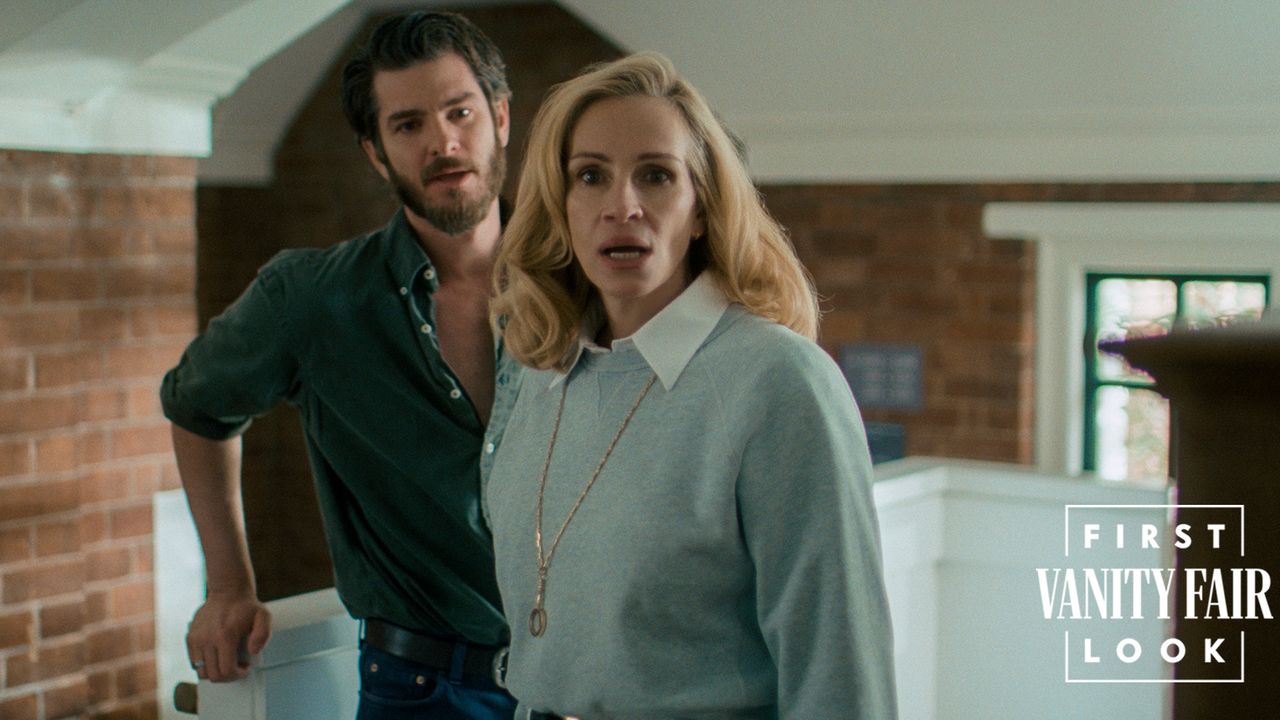“Not everything is supposed to make you comfortable.”This line is whispered by Julia Roberts in After the Hunt—but it easily could have been said by
“Not everything is supposed to make you comfortable.”
This line is whispered by Julia Roberts in After the Hunt—but it easily could have been said by filmmaker Luca Guadagnino. The Italian auteur has never shied away from unsettling storytelling: cannibalistic romances (Bones and All), sweaty love triangles (Challengers), and an age-gap gay love story (Call Me by Your Name).
For his latest film, he’s bringing that discomfort to the hallowed halls of Yale. Guadagnino’s twisty psychological thriller After the Hunt is centered on power and privilege, truth and secrets, and ambition and disgrace. It grapples with timely contradictions, and the things that people think but are too afraid to express.
“For me, our role as storytellers, filmmakers, or artists, must always be the one of pushing the envelope, of being able to say everything. It depends on how you say it,” Guadagnino tells Vanity Fair.
The story follows Alma Imhoff (Roberts), an ambitious philosophy professor on the verge of tenure. But when Maggie (Ayo Edebiri), one of her top students, accuses Alma’s close colleague Hank (Andrew Garfield) of assault, Alma’s secret history and future success both come under threat.
After the Hunt combines Guadagnino’s affinity for complicated storytelling with his focus on craft, as well as intricate, nuanced performances by Roberts, Edebiri, Garfield, and supporting actors Chloë Sevigny and Michael Stuhlbarg. With its August 28 Venice Film Festival world premiere just one day away, After the Hunt aims to ask challenging questions, and let audiences grapple with their answers. “The idea that something cannot be said, an idea cannot be used, a reference cannot be brought to light because there is a sort of unspoken impossibility of doing so and a self-censorship—it’s so upsetting to me,” says Guadagnino. “In a movie about dynamics of power and control, it was very important that we felt the joy of our expression, without being mindless, but actually being very thoughtful.”
After the Hunt could have been inspired by any number of true stories. But first-time screenwriter Nora Garrett says she didn’t base her script on a specific case. Instead, she was more curious about how the culture has explored moments of reckoning like the #MeToo movement. “We were missing a sense of gray area,” she says. “But also, we were missing a sense of how power obfuscates, how those within power are insulated from consequences, and those without it are often naked to consequences.”
Garrett felt as though the cloistered world of academia—a closed community marked by infighting and a very clear hierarchy—would be the perfect setting to explore these weighty issues. She wrote the first draft of the script during a 12-week writers workshop.
Garrett spent years as a struggling actor; when her script was making the rounds, she was also working as a data analyst for Meta to make ends meet. “I’ve always been really fascinated by power and power structures and successful people within those power structures,” she says. “Partially because I was outside of success for so long. I was like, ‘What does one do? What happens to your mentality? What happens to the way you tell stories about yourself when you start getting power, when you start having success?’”
The script found its way to the production company Imagine Entertainment, and eventually to Guadagnino, who worked with Garrett to push its more challenging and uncomfortable explorations to the forefront. They beefed up the screenplay’s focus on the divide between generations, with Alma and her colleagues struggling to understand the culture of Gen Z. (“I believe her, but whatever happened to stuffing everything down like the rest of us?” says Sevigny’s character in the trailer.)
“He really wanted to make it so that neither generation felt like the right generation, or they had the right ideas,” says Garrett of Guadagnino. “He wanted it to feel like all of these people are products of the society in which they were born into, in which they grew up in. They’re all acting out of that sort of primordial soup, as opposed to acting out of righteousness.”
Alma is the center of the story, and all the other characters pivot around her—from Maggie and Hank, who adore and worship her, to her husband (Stuhlbarg), who cares for and challenges her. Guadagnino says Roberts was the first actor to see the script. “We started talking and became instant friends,” the director says. He cast the Bear star Edebiri because of her “wit and spirited intelligence,” and had wanted to work with Garfield for years—since he saw Garfield in his 2007 feature film debut, Lions for Lambs.
Each character is layered and full of contradictions. But Garfield’s Hank, the man accused of assault, required an incredible amount of agility and intensity. “There were a lot of discussions about the ambition of this man, his capacity of being so mindless about his vanity,” says Guadagnino. “And we discussed the idea of being dispossessed in his own truth. How does he deal with that? What that triggers: rage, fury. At the same time, what is behind his own truth? Because if he has his own truth, that doesn’t mean that that’s the truth.”




COMMENTS